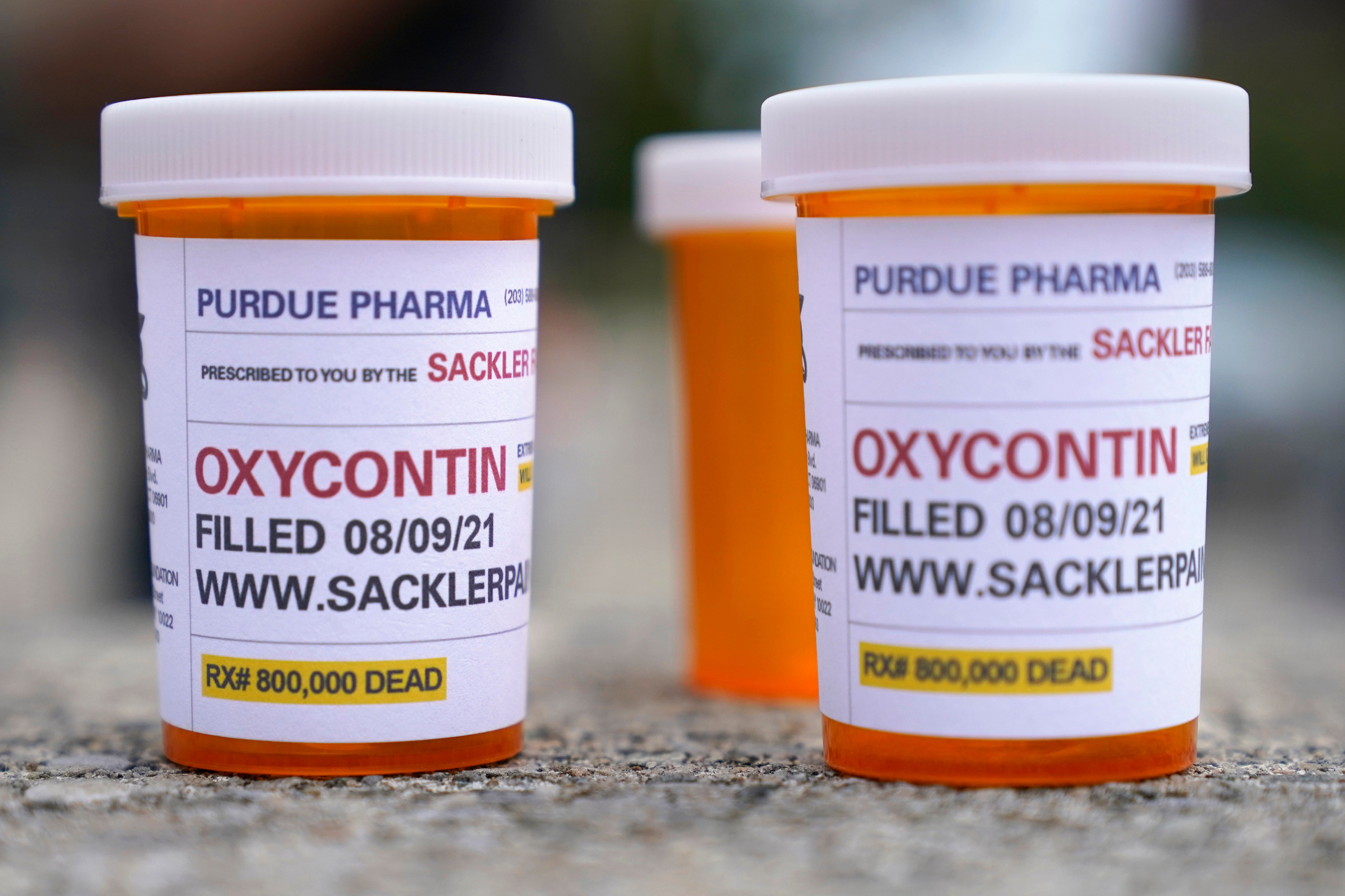Judge: Purdue Pharma can resume groundwork on its settlement
A federal judge says OxyContin maker Purdue Pharma can resume laying the groundwork to carry out its $10 billion settlement plan

Your support helps us to tell the story
From reproductive rights to climate change to Big Tech, The Independent is on the ground when the story is developing. Whether it's investigating the financials of Elon Musk's pro-Trump PAC or producing our latest documentary, 'The A Word', which shines a light on the American women fighting for reproductive rights, we know how important it is to parse out the facts from the messaging.
At such a critical moment in US history, we need reporters on the ground. Your donation allows us to keep sending journalists to speak to both sides of the story.
The Independent is trusted by Americans across the entire political spectrum. And unlike many other quality news outlets, we choose not to lock Americans out of our reporting and analysis with paywalls. We believe quality journalism should be available to everyone, paid for by those who can afford it.
Your support makes all the difference.A federal judge on Wednesday allowed Purdue Pharma to resume its work carrying out the recent $10 billion settlement plan that allowed the Oxycontin maker to emerge from bankruptcy.
The decision from U.S. District Court Judge Colleen McMahon denied a request from an arm of the U.S. Department of Justice to keep Purdue's work on hold pending an appeal of the settlement. McMahon partially reversed a position she took over the weekend when she temporarily halted the company's efforts at the request of the U.S. Bankruptcy Trustee.
Before Purdue can resume, the judge said she needs to extract a promise from the company and the other entities that agreed to the settlement. They would pledge not to undermine the appeal in the future by claiming the settlement process had progressed too far to stop.
Lawyers for Purdue said in court this week that the company and other parties who supported the settlement — a group that includes Sackler family members and most states — are willing to sign such a pledge. Lawyers said they want to be ready to get money quickly to governments and victims of the opioid crisis if the settlement stands.
Last month, a bankruptcy judge in White Plains, New York approved Purdue's plan to settle 3,000 lawsuits and more than 100,000 other claims for damages the company faced related to the toll of the opioids crisis. Prescription and illicit opioids have been linked to more than 500,000 deaths in the U.S. over the last two decades.
The bankruptcy settlement calls for turning Purdue into a new entity with its profits being used to fight the epidemic. It also calls for members of the Sackler family to contribute $4.5 billion in cash and charitable assets, and to give up ownership of Purdue.
A provision that is a driving force behind the appeal gives the Sacklers protection from civil lawsuits related to opioids. In a hearing Tuesday in her New York courtroom, McMahon said she intended to cast aside other legal arguments.
“That’s the big dog here," she said. “That presents a pure question of law.”
The appeal in federal district court is just one part of a complicated legal case.
U.S. Bankruptcy Judge Robert Drain, who approved Purdue's settlement, has scheduled a hearing for next month that also hinges on the question of whether the plan should be put on hold. He's also being asked to send the case to U.S. Circuit Court, a move that would bypass McMahon's court. But the appeals judges would have to agree to take it.
The U.S. Bankruptcy Trustee's office did not comment immediately Wednesday on what step it might take next.